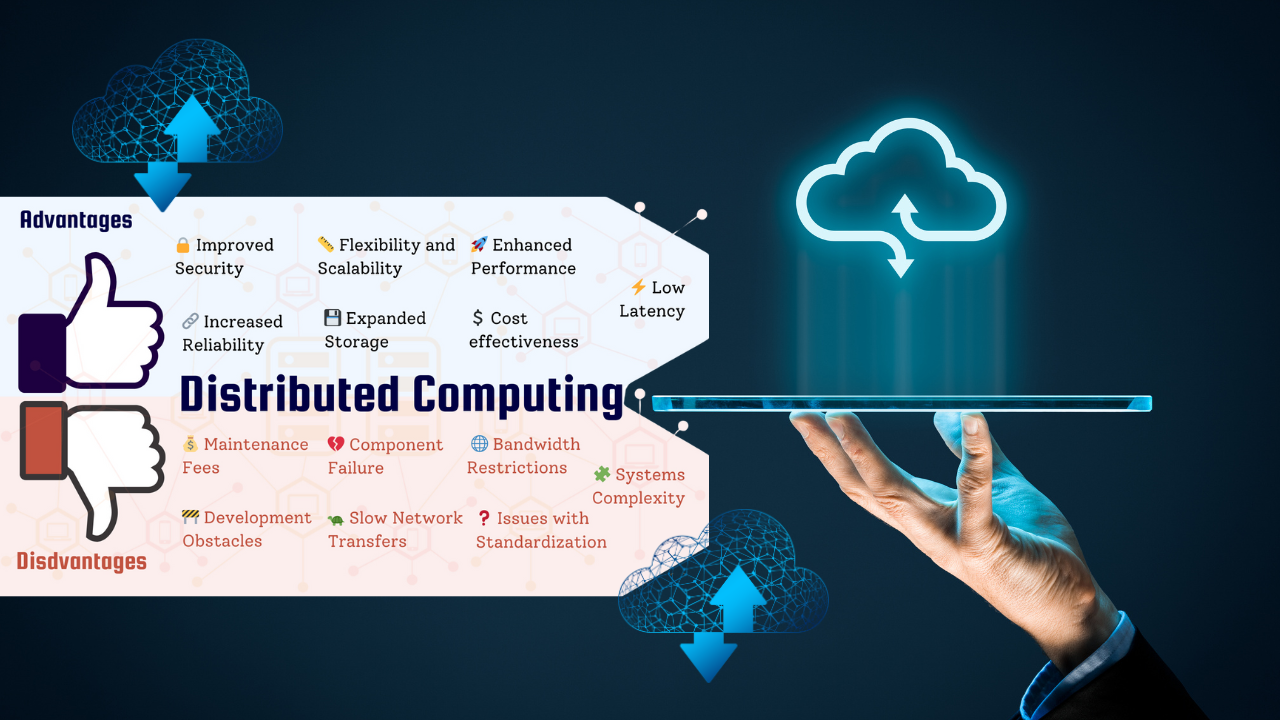
cloud computing
Businesses have undergone a paradigm shift thanks to the numerous advantages of cloud computing, including increased flexibility, cost-effectiveness, and efficiency. Companies can access powerful computing resources without having to make a significant initial investment in hardware and infrastructure by making use of cloud technology. We should jump into the different advantages of distributed computing and how it can change your business.
Cost Reserve funds
One of the main advantages of distributed computing is cost reserve funds. Businesses have the option of using a pay-as-you-go model rather than making significant investments in actual data centers and servers. This decreases capital consumption and permits organizations to allocate assets more. Since cloud service providers handle updates and repairs, maintenance costs are also lower.

Flexibility and Scalability
The cloud provides unparalleled scalability. Organizations can undoubtedly increase their activities or down in view of interest without agonizing over actual framework limits. Because it enables them to adjust their resources in real time, this flexibility is essential for businesses that are experiencing growth or seasonal fluctuations.
Improved Teamwork With cloud computing, employees can access applications and files from any location with an internet connection. This makes it easier to work together, which is especially helpful for teams that work from different locations. Constant updates and shared work areas imply that colleagues can cooperate flawlessly, no matter what their actual area.
Disaster Recovery and Data Security Cloud computing providers make significant investments in robust backup solutions and security measures. Your data will be safe from cyberattacks and can be quickly restored in the event of a disaster thanks to this. Organizations benefit from big business-level security without the related expenses and intricacies.

Automatic Updates It can be costly and time-consuming to keep systems and software up to date. Distributed computing suppliers offer programmed refreshes, guaranteeing that you generally approach the most recent elements and security patches. This assists organizations with remaining current without the requirement for manual mediation.
Upper hand
Taking on distributed computing can give organizations an upper hand. Applications and services can be deployed more quickly as a result, allowing businesses to innovate and respond to market shifts more quickly. Additionally, advanced technologies like big data analytics and artificial intelligence can be accessed through cloud computing, which can spur further innovation.
The advantages of distributed computing for organizations are clear: a competitive advantage, scalability, improved collaboration, solid security, automatic updates, and cost savings By embracing cloud innovation, organizations can open new doors and drive their tasks forward in a quickly changing computerized scene. If you haven't yet thought about the transition to the cloud, this is the ideal opportunity to investigate how it can help your business.
For more information and to enhance your online presence, visit DOnline360, a digital communication agency offering comprehensive services including web design and development, digital marketing, SEO, content creation, and social media management. DOnline360 focuses on creating visually appealing, functional, and user-friendly websites tailored to their clients’ needs.
FAQs
1. What is cloud computing? Cloud computing is the delivery of computing services such as servers, storage, databases, networking, software, and more over the internet (the cloud) to offer faster innovation, flexible resources, and economies of scale.
2. How does cloud computing reduce costs for businesses? Cloud computing reduces costs by eliminating the need for significant upfront investments in physical infrastructure. Businesses can use a pay-as-you-go model, reducing capital expenditure and maintenance costs.
3. What makes cloud computing scalable and flexible? Cloud computing allows businesses to scale their resources up or down based on demand without physical infrastructure limitations. This flexibility is crucial for handling growth or seasonal changes in workload.
4. How does cloud computing enhance collaboration? Cloud computing enables employees to access files and applications from anywhere with an internet connection, fostering better collaboration, especially for remote teams, through real-time updates and shared workspaces.
5. What are the security benefits of cloud computing? Cloud service providers invest in robust security measures and backup solutions, ensuring data protection against cyber threats and quick recovery in case of a disaster, offering enterprise-level security without the high costs.
6. How do automatic updates benefit businesses using cloud computing? Cloud computing providers offer automatic updates, ensuring that businesses always have access to the latest features and security patches without the need for manual intervention, saving time and reducing costs.
7. Can cloud computing provide a competitive advantage? Yes, adopting cloud computing enables faster deployment of applications and services, access to advanced technologies like AI and big data analytics, and the ability to innovate and respond to market changes quickly, giving businesses a competitive edge.
8. What industries can benefit from cloud computing? Virtually all industries can benefit from cloud computing, including healthcare, finance, retail, manufacturing, and education, by leveraging its cost savings, scalability, security, and advanced capabilities.
9. Is cloud computing suitable for small businesses? Yes, cloud computing is particularly beneficial for small businesses as it provides access to advanced IT infrastructure and services without the need for significant upfront investments, allowing them to compete with larger enterprises.
10. How do I get started with cloud computing for my business? To get started with cloud computing, assess your business needs, choose a reliable cloud service provider, and gradually migrate your applications and data to the cloud. It’s also advisable to consult with IT professionals to ensure a smooth transition.








